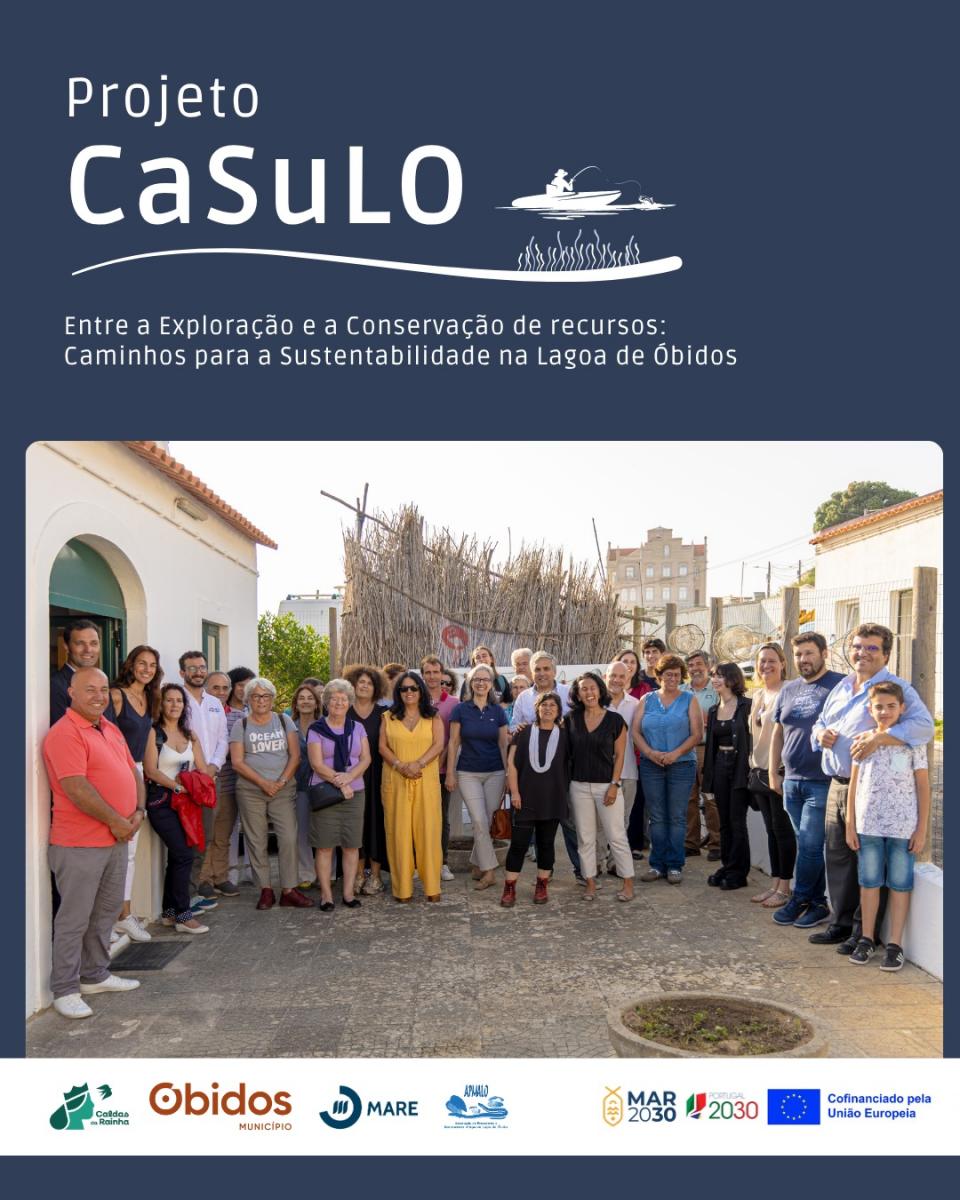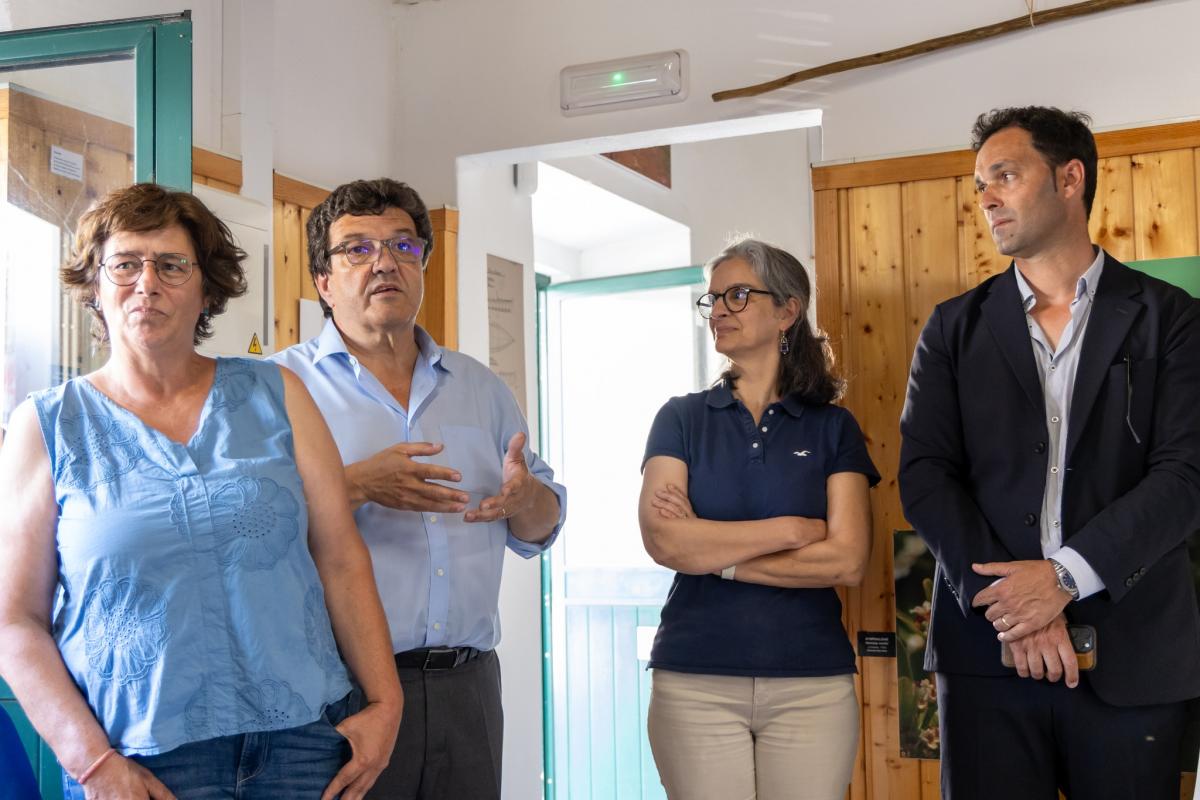CaSuLO project aims to ensure a sustainable future for Óbidos Lagoon
The CaSuLO project - Between Resource Exploitation and Conservation: Paths to Sustainability in Óbidos Lagoon - was presented on June 9 at a public session held at the Óbidos Lagoon Interpretation Center in Foz do Arelho.
The project, with a budget of 83,477.64 euros, will run until May 2027, with funding from the MAR 2030 Program (70%) and co-financing from the Municipality of Caldas da Rainha (30%). The aim is to promote a more integrated and sustainable management of Óbidos Lagoon, through coordination between public authorities, the scientific sector, local communities and direct users of the territory.
The initiative stands out for its strong scientific component, led by MARE - Center for Marine and Environmental Sciences, through its units at the Faculty of Sciences of the University of Lisbon (MARE-ULisboa) and the School of Tourism and Marine Technology of the Polytechnic Institute of Leiria (MARE-IPL). Participating in the project are researchers Maria João Correia, Teresa Mouga and Carla Santos, with extensive experience in the areas of marine ecology, coastal management and community involvement.
The work plan includes the characterization of marine prairies, the analysis of interactions between fishing and conservation, the promotion of cooperation forums between different agents, and the construction of collaborative governance instruments and proposals that combine scientific knowledge, local practices and public policies.
“Identifying measures that preserve the habitat and at the same time guarantee the continued exploitation of the lagoon's resources will require a transparent dialogue between scientists, users and management authorities,” stresses Maria João Correia.

For Teresa Mouga, “the preservation of Óbidos Lagoon requires an integrated vision that combines the protection of biodiversity with the continuity of the human activities that depend on it”. The researcher adds that “the sustainable coexistence of the various uses - shellfish gatherers, tour operators, maritime tourism companies and local communities - is a complex but necessary challenge”.
Carla Santos reinforces this point: "The main challenge will be to maintain objectivity and the ability to establish consensus in the codecision process that will be carried out with a view to drawing up a sustainable management plan. By overcoming this challenge, CaSuLO will be able to generate management tools that are felt to be the result of the contribution of all the key players."
The CaSuLO project is being developed in partnership with the Municipalities of Caldas da Rainha and Óbidos, the Association of Fishermen and Shellfishermen of Óbidos Lagoon (APMALO), the PATO Association and also has the institutional support of APA, DGRM, IPMA, ICNF, the Captaincy of the Port of Peniche and the Professional Training Center for Fisheries and the Sea FORMAR.
